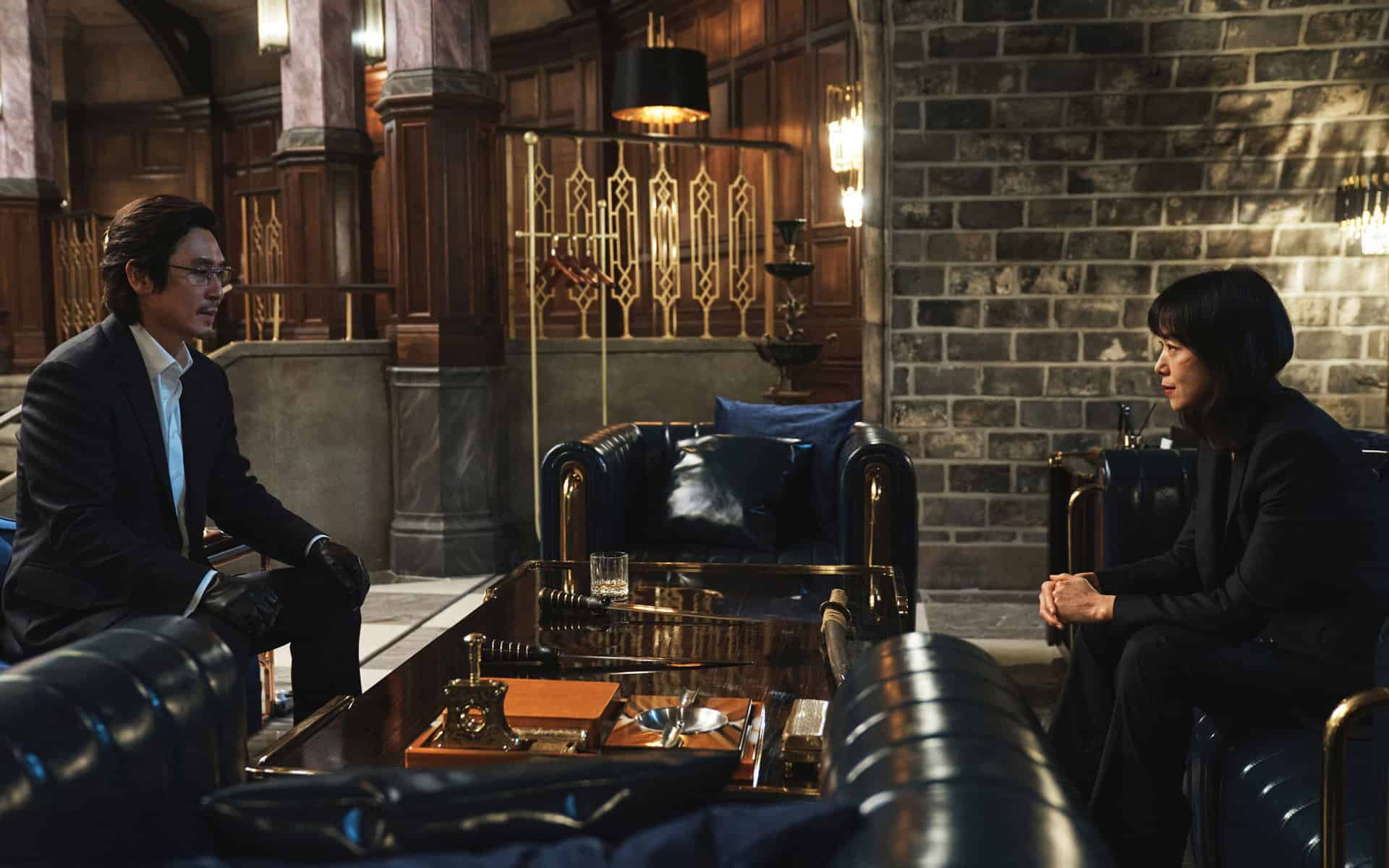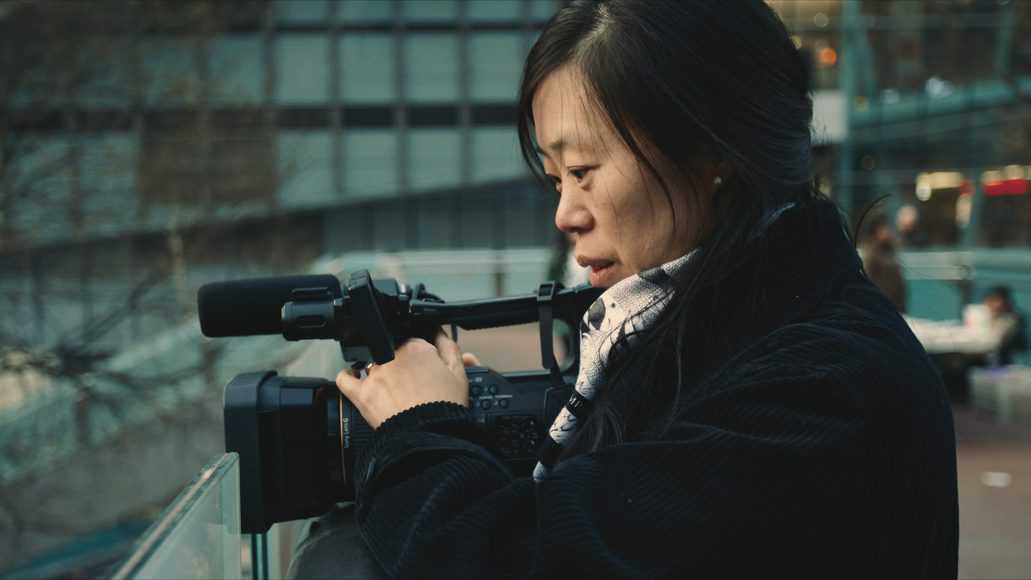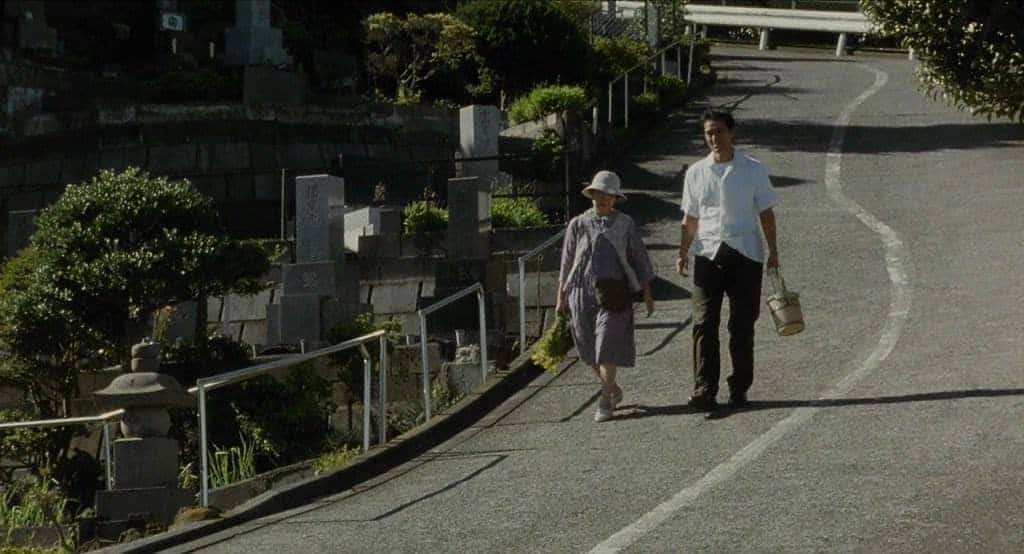With a humongous budget for Malaysian standards of RM6 million (almost $1,5 million), Pulang is one of the most advertised and most ambitious film coming from the country, in a mainstream approach that seems to draw as much as possible from Hollywood aesthetics. Let us take things from the beginning though.
The script is based on an actual love story that begun in Malaysia during the 30's and stretched for more than six decades, although the director took a number of liberties with it, as the actual footage in the finale of the film suggests. This love story begins in 1939, in Serkam, Malacca, and revolves around Othman, a local fisherman who falls in love with Thom, a girl who visits the place in order to take care of her dying grandmother. The two of them fall in love instantly, and after a while, they get married, despite the fact that both are very poor. Their marriage, their family that soon includes a son, Omar and themselves for that matter, survive the Japanese invasions and WW2, but they find themselves unable to make a living after the end of it. Eventually, Othman decides to sail on a British cargo ship on a search for a fortune. However, things do not go in his favor, and he finds himself away for decades, while his family waits for him.

As the story unfolds in various time axes, in the “present” one, we witness a dying Thom asking her grandson, Ahmad, to find the whereabouts of the love of her life, even if that includes just a grave. A reluctant Ahmad agrees and begins the research, but soon comes across a number of secrets, mostly involving his father.
Kabir Bhatia directs a film that entails the majority of the elements that make a movie commercially successful nowadays, even on an international scale. In that fashion, we have a script based on a true love story, which, additionally, includes much drama, a number of mysteries, agony for the final outcome, and a story which also serves as a synopsis of the country's modern history. Add to that the very beautiful protagonists, the frequent use of Aubrey Suwito's music to heighten the sense each scene is supposed to give, Zambir Haras's impressive cinematography, and CGI, and you have, in essence, the backbone of a Hollywood blockbuster with an oriental flavor.
Bhatia manages to combine all the above elements quite well, and in the process presents a very compelling story, that retains the interest of the spectator for the most part. His own editing (along with Naeim Ghalili and Abdul Samad Hassan) is one of the production's best traits, as it keeps the various axes from becoming confusing and presents them in a way that keeps the mystery until the end, in a pace that is rather entertaining to watch.

The acting is also on a good level, although the various timeframes do not allow any specific actor to “shine” specifically, with the exception of Remy Ishak, whose character's transformation as the story progresses is quite convincing. Puteri Aishah as Thom also has her moments, although her role is overshadowed by that of her co-protagonist. The peripheral characters, like Lum (Alvin Wong) and Omar in his 50's (Jalaluddin Hassan) are also quite well presented.
However, as the film reaches its end, the intricate balance between adventure, romance and drama shifts excessively towards the latter, which results in a number of melodramatic scenes that fault the general quality of the narrative. At the same time, these scenes stretch the duration of the film to almost 120 minutes any specific purpose, apart from drawing sentiment.
The second fault of the film also lies near the end, since I could not understand why Bhatia had to change the conclusion of the actual story, which is in itself, quite dramatic and more than interesting.
Nevertheless, and despite these faults, the majority of the movie works quite well, and results in a rather entertaining production, that thrives on story and visuals. Fans of Hollywood mainstream will definitely enjoy the film.















